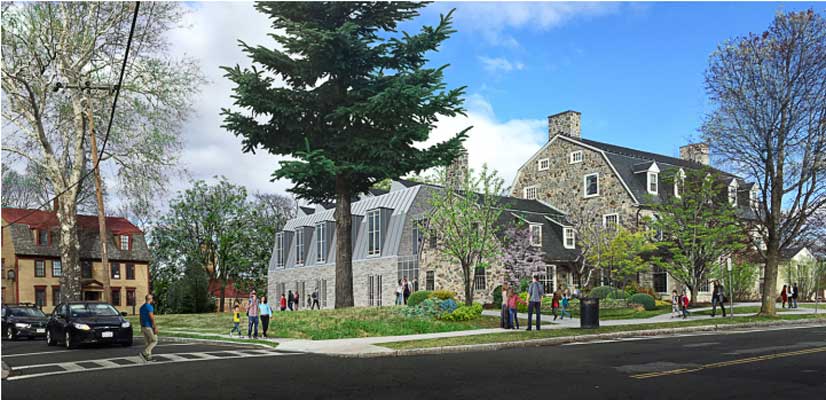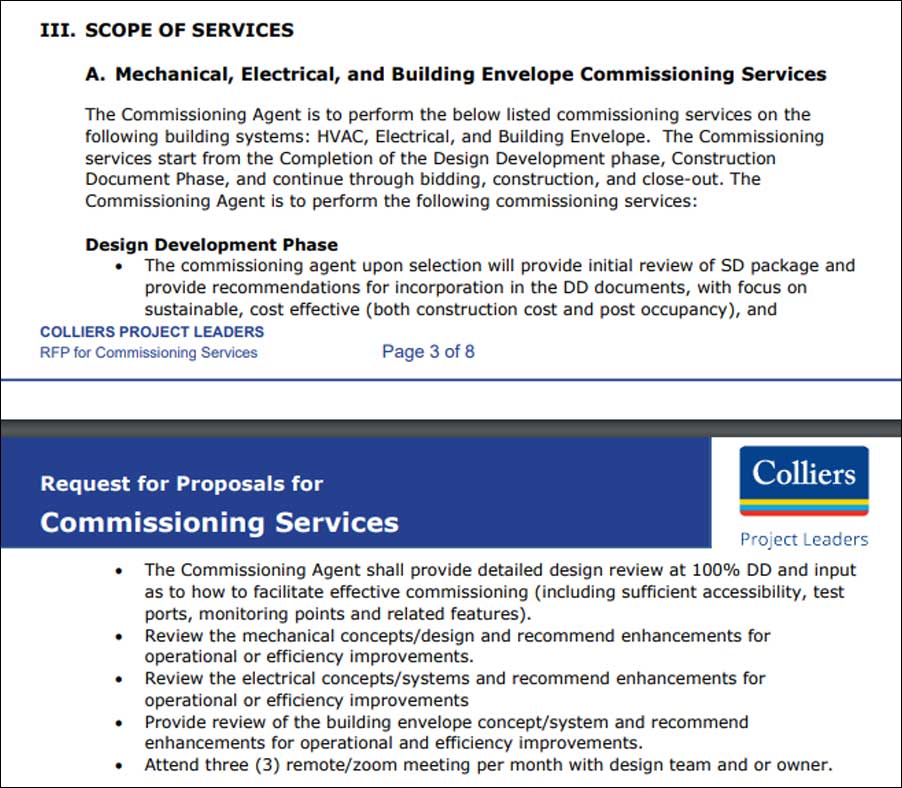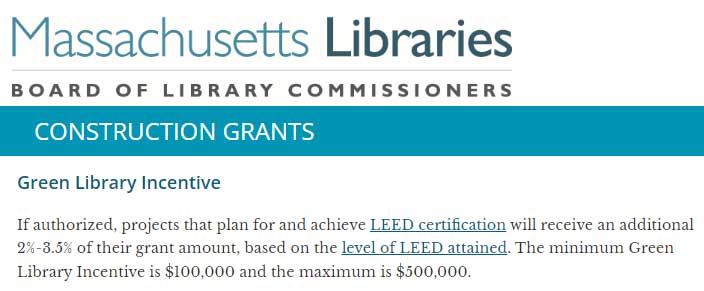Library Project Pivots To New Energy Code, Denies Greenwashing

Photo: https://www.joneslibrary.org/
Designers Running TEDI Analysis Required By 2023 Stretch Energy Code
After a brief attempt to be grandfathered under a less stringent, expiring energy code, the Jones Library renovation-expansion project has announced that it will honor the Massachusetts 2023 stretch energy code that took effect on July 1.
See related Library Project Shuns State Energy Code. Building Inspector Explains The Rules
Ellen Anselone of Finegold Alexander Architects (FAA) reported at the July 27 Jones Library Building Committee (JLBC) meeting that the designers were working with energy experts to model the expanded library’s Thermal Energy Demand Intensity (TEDI) as required by the new state code. This work augments FAA’s previous focus on another measure of building performance known as Energy Use Intensity (EUI).
Preliminary TEDI modelling results are looking positive, she announced. “It doesn’t look like it’s significant changes but we’ll know a little bit more next week. There may be some tweaking of a little bit of the insulation.”
FAA’s prior attention to reducing EUI helped with the TEDI numbers, she said. The project set an initial goal of reducing EUI by 60%, from 72.3 to 29. The degree to which a battery of “value engineering” feature reductions may have affected the EUI of the new design will be determined by an updated EUI analysis that awaits completion.
Town Hopes To Hire Commissioning Agent By Late August
Finance Director Sean Mangano updated the JLBC on efforts to hire a project commissioning agent, an independent quality assurance position required by state library grant regulations to be retained during the project’s design phase.
See related Failure To Hire Quality Assurance Lead Raises Troubling Questions For Jones Library Project
Mangano reported on the town’s lack of success in hiring a commissioning agent. “We solicited some commissioning proposals back in January. We received only one proposal [from Colliers who developed the Request For Proposal] and that commissioning process was based on the existing energy code. Now that we know we’re going to be operating [under] a new energy code, we’re going to be re-soliciting proposals.”

In an apparent contradiction of commissioning requirements laid out by the Massachusetts Board of Library Commissioner (MBLC), Colliers and Mangano have maintained that commissioning during the project’s now-completed Design Development phase is optional, and not required until the construction phase. This decision prevents a review of design documents by an independent quality assurance professional at a time when necessary changes can still be made.
Mangano stated that a new Commissioning RFP should go out next week. He expects proposals back by mid-to-late August, with a contract signed shortly after.
Sustainability Committee Member Todd Holland Refutes Greenwashing Charges
Sensitive to recent criticism that the Library project has been engaging in “greenwashing” or exaggerating sustainability improvements in order to win approval for additional funding, Chair Austin Sarat asked a pointed question. “As we’ve gone through the Value Engineering Process, Ellen [Anselone of FAA] and Tim [OPM Alix of Colliers], I want to make sure that you agree with the characterization that our energy and sustainability goals played a prominent role in the Value Engineering Process. Is that an accurate description?”
After a period of silence, Anselone replied, “That feels like a little bit of a trick question.” She went on to assure that “sustainability is embedded in this project” and has “not been on the chopping block.”
See related Opinion: Greenwashing The Jones Library Expansion
During public comment Todd Holland, a mechanical engineer specializing in green buildings and a member of the Library Sustainability Committee, took exception to the greenwashing criticisms. Holland stressed that the building’s EUI performance is most important, whether you’re “using LEED Certification or Living Building Challenge” criteria.
Regarding the elimination of the light-admitting sawtooth roof design, he said “I don’t have a big soft spot for putting a very low R-value, very expensive roofing material on something that’s going to let ultraviolet light into the building that books don’t like.”
The sawtooth roof which was meant to replicate the current atrium’s natural lighting is reportedly being replaced by less expensive flat light monitors.
Holland claimed that sustainability comparisons between the library and the new Fort River School are not relevant because a standard engineer database known as CBECS lists libraries as having 50% higher EUI values than K-12 schools.
The 2023 Massachusetts Stretch Energy Code requires libraries smaller than 100,000 sq. ft. to achieve a heating TEDI of 2.5 and a cooling TEDI of 21. A school larger than 100,000 sq. ft., such as the new Fort River School, must achieve a heating TEDI of 2.2 and a cooling TEDI of 12.
Holland added that the expanded Jones Library represents “a very large building on a very small space” which presents sustainability solution challenges.
Holland defended the project’s choice of air source heat pumps over geothermal or ground source heat, emphasizing that “it’s very expensive to drill holes in the ground.” He acknowledged that Eversource incentives for installing ground source heat are double the incentives for air source, but he contended that the incentives would not offset the cost of putting holes in the ground. “Geothermal would have been a very expensive and difficult solution for this building in my opinion,” he said.
The net-zero Fort River School has opted to install a ground source geothermal heating system.
While the MBLC offers incentives for LEED certification of up to 3.5% of the construction grant, or as much as $480,000 in Amherst’s case, Holland explained why early on the Sustainability Committee recommended against pursuing LEED certification. He cited the overhead and fees associated with the LEED process. “I don’t mean to criticize it, but it’s not inexpensive and it’s a lot of bookkeeping,” he said.
The Fort River School project has reported being on track to achieve the second highest, or gold level of LEED certification.
Holland praised the Jones Library project as being among the first in town to consider embodied carbon in its design by seeking low carbon footprint building materials. As an example he panned the use of triple glazed windows. With double or triple paned windows, he argued, “that window assembly is more expensive, it’s heavier, it’s got more stuff in it, it took more carbon to make.”
Epsilon Associates, the consulting firm hired by the town to pursue historic tax credits, has identified triple glazing as a key component of the 2023 Stretch Energy Code.
Sarat concluded by extolling the work of the Sustainability Committee.
“The Board of Trustees of the library did, I think, a kind of courageous thing which was we convened a group of people who are going to hold our feet to the proverbial fire about sustainability and I think the project is better for it,” he said.

